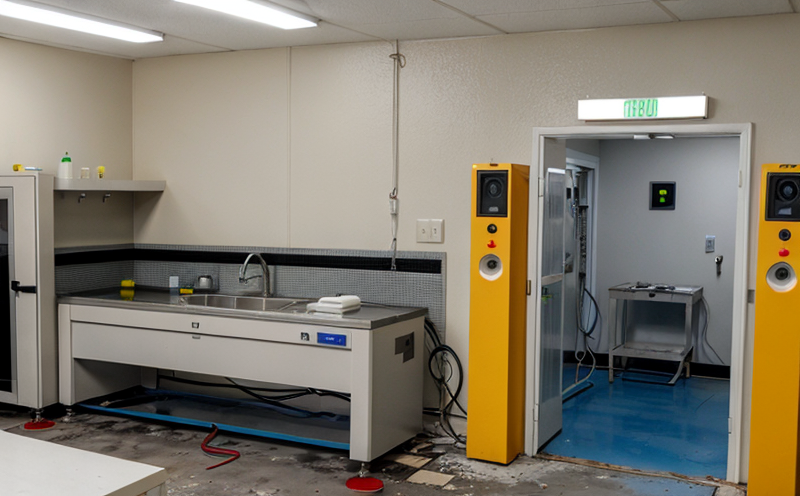ASTM D3648 Measurement of Surface Contamination on Materials
The ASTM D3648 standard provides a method to measure surface contamination levels by alpha, beta, and gamma radiation on materials. This service is crucial for ensuring that materials used in environments where radiological contamination is present meet strict quality and safety standards.
Surface contamination can arise from various sources such as radioactive fallout, industrial processes, or nuclear accidents. ASTM D3648 helps to identify the extent of this contamination on surfaces like concrete, steel, plastics, and other materials used in construction, medical equipment manufacturing, and nuclear facilities.
The testing method involves measuring radiation levels at various points on the surface using a scintillation detector or Geiger-Müller counter. The results are compared to reference values provided by ASTM D3648 to determine whether the material is within acceptable limits for safe use.
This service plays a vital role in ensuring compliance with international standards and regulations, such as those outlined in ISO 17709 (Nuclear fuel cycle facilities—Radiological monitoring) and IAEA safety standards. By adhering to these standards, organizations can mitigate risks associated with radiological contamination.
The ASTM D3648 service is particularly important for industries where the integrity of materials is critical, such as nuclear energy, medical device manufacturing, construction, and environmental remediation. In these sectors, even trace amounts of radiation can pose significant health hazards if not properly managed.
Our laboratory adheres strictly to ASTM D3648 guidelines, ensuring accurate and reliable results. This includes precise calibration of instruments, standardized specimen preparation, and meticulous data recording. We use state-of-the-art equipment like the HPGe detector for gamma spectroscopy and scintillation counters for alpha and beta particle detection.
By leveraging this service, organizations can maintain compliance with regulatory requirements and protect public health and safety. Our expertise in ASTM D3648 ensures that we deliver accurate results consistently, enabling clients to make informed decisions about material selection and use.
Industry Applications
| Industry Sector | Description of Application |
|---|---|
| Nuclear Energy | ASTM D3648 testing ensures that materials used in nuclear power plants are free from radioactive contamination. This is critical for preventing the spread of radiation and ensuring the safety of workers and the public. |
| Medical Device Manufacturing | In medical device manufacturing, ASTM D3648 helps ensure that devices are not contaminated with radionuclides. This is important for maintaining product integrity and patient safety. |
| Construction | ASTM D3648 testing is used to verify the absence of radiation contamination in construction materials, particularly those used near nuclear facilities or areas affected by radioactive fallout. |
- Nuclear fuel cycle facilities need accurate measurement methods to monitor and control radiological contamination levels.
- Environmental remediation projects require reliable testing to ensure that materials used in cleanup efforts are not contaminated with radioactive substances.
Eurolab Advantages
Our laboratory is dedicated to providing high-quality ASTM D3648 testing services. With state-of-the-art equipment and experienced technicians, we ensure that every test meets the highest standards of accuracy and reliability.
We offer fast turnaround times for our clients, allowing them to receive results quickly and make timely decisions. Our commitment to continuous improvement means that we stay up-to-date with the latest ASTM guidelines and international best practices.
Our team of experts can provide detailed reports and recommendations based on test results, helping you understand the implications of contamination levels and how they affect your operations. Whether you're a quality manager or an R&D engineer, our services are designed to support your specific needs in managing radiological contamination risks.
Customer Impact and Satisfaction
- Ensures compliance with international standards and regulations.
- Reduces the risk of radiation exposure to workers and the public.
- Helps in maintaining product integrity and patient safety in medical device manufacturing.





